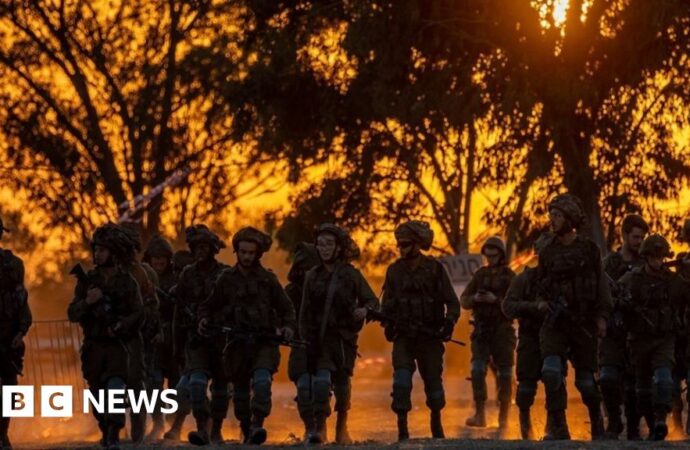The prevalence of false claims, conspiracy theories, and hateful content surrounding the Israel-Gaza conflict on social media raises concerns about the use of inauthentic accounts to manipulate the conversation.
In recent weeks, social media platforms have been flooded with misleading information and divisive narratives related to the ongoing violence in Israel and Gaza. These posts not only distort the truth but also have significant implications for the international community’s understanding of the situation, hinder investigations into alleged war crimes, and complicate efforts to provide aid.
One example of disinformation involves a TikTok video showing a young Israeli woman being taken hostage by Hamas fighters. While the footage has been verified by the BBC, some users falsely claimed that the woman was not a civilian but a soldier, or that the clips had been staged to frame Hamas. This kind of misinformation aims to undermine the violence against hostages and create confusion about the reality on the ground.
Furthermore, accounts supporting the Israeli government have also shared misleading and hateful content. For instance, a video falsely suggesting that Palestinian people were faking their injuries in Gaza was shared by an account. However, the footage was actually from a 2017 report about a makeup artist working on Palestinian films and charities. These misleading claims not only distort the truth but also contribute to a divisive and polarized online conversation.
Identifying the sources of these misleading posts can sometimes be challenging. While some accounts are clearly linked to celebrities or individuals with a history of pushing conspiracy theories, others are less obvious. Some accounts belong to real, younger individuals who have shared funny memes or football clips, while others have posted about a mix of political topics. It is important to investigate and uncover the identities and motivations behind these accounts to better understand the extent of manipulation and disinformation surrounding the Israel-Gaza conflict.
In conclusion, the prevalence of false claims, conspiracy theories, and hateful content on social media platforms during the Israel-Gaza conflict raises concerns about the use of inauthentic accounts to manipulate the conversation. This disinformation not only distorts the truth but also hinders efforts to uncover the reality on the ground and impedes international investigations and aid provision. It is crucial to be critical consumers of information and to seek reliable sources to gain a comprehensive understanding of the situation.









